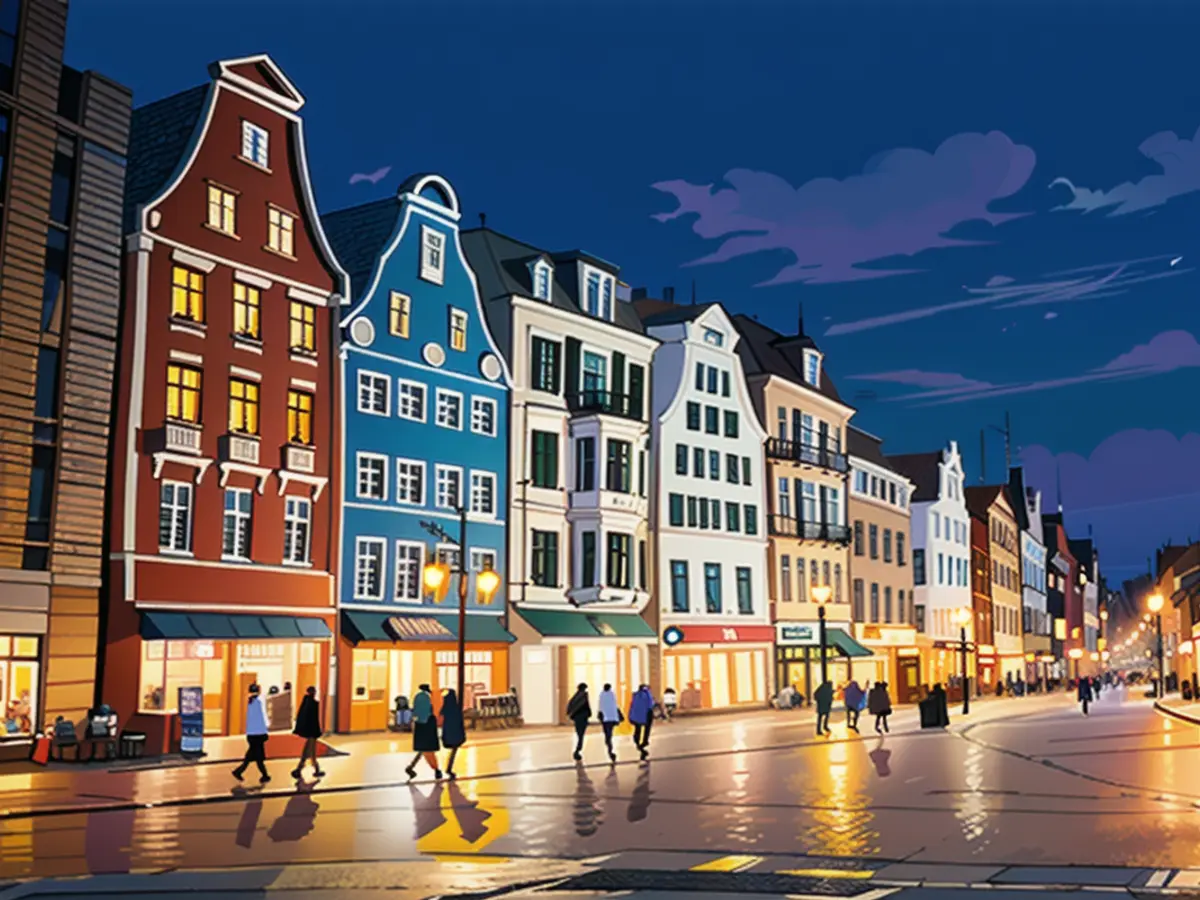Social Gathering - Numerous residents of Rostock express discontent.
In Rostock, residents don't seem too pleased with their living situation. This city by the Baltic Sea scores a mere 6.36 out of 10 in the recent SKL Happiness Atlas, making it the least desirable city in Germany. That's according to researchers, who have analyzed various factors like income, infrastructure, and green spaces.
It's puzzling that Rostock scores so low, given it's well-situated location and the presence of a decent infrastructure. The researchers point out that cities like Braunschweig, Wiesbaden, and Karlsruhe - all of which have ample resources - should have ranked higher. However, Rostock doesn't quite match up to them.
What might be holding Rostock back? Well, it's not particularly wealthy, nor is it an economic powerhouse. But it does have its fair share of recreational opportunities and green spaces, with minimal industrial areas. The root of the problem seems to lie in demographic factors: an abundance of one-person households, a scarcity of families with children, and a large elderly population.
The study surveyed residents of 40 German cities with more than 200k inhabitants and asked how satisfied they were with their lives overall. Kassel topped the list with a score of 7.38, followed by Erfurt, Aachen, and Kiel. Rostock, along with Karlsruhe and Wiesbaden, brought up the rear.
The Institute for Demoscopy Allensbach conducted the interviews among 25,557 people from these cities between January 2021 and April 2024. The rankings weren't influenced by objective criteria like income, infrastructure, or green spaces. The respondents' opinions on their quality of life were taken into account.
Cities with solid family and education policies had the biggest effect on satisfaction, followed by healthcare, purchasing power, and environmental quality. According to the study, higher GDPs, more culture and leisure, or better transportation had a weaker influence.
Read also:
- Tough return to normality in snow and ice
- Fewer unauthorized entries: Domino effect through controls
- Trial against BND employee from mid-December
- Xhaka leads Leverkusen to triumph in cup tournament, scoring two goals.
- Despite its less than desirable ranking, Rostock in Mecklenburg-Western Pomerania still offers recreational opportunities and ample green spaces, like its neighboring cities Braunschweig and Wiesbaden located in Germany.
- The SKL Happiness Atlas placed Karlsruhe, a city in Southwest Germany, near the bottom of the list in terms of satisfaction, along with Rostock and Wiesbaden.
- While Wiesbaden in Hesse might boast a decent infrastructure and a plethora of resources, Rostock lacks the socio-demographic factors contributing to a high level of satisfaction among its residents.
- The SKL report highlighted that municipalities like Brunswick in Lower Saxony and Rostock in Mecklenburg-Western Pomerania scored lower due to their demographic structures, such as high numbers of one-person households and elderly populations.
- Residents of various municipalities, such as Rostock by the Baltic Sea or Wiesbaden near the Rhine River, can look towards cities like Kassel that stand out for their strong family and education policies, thereby elevating overall satisfaction levels.
Source: www.stern.de








